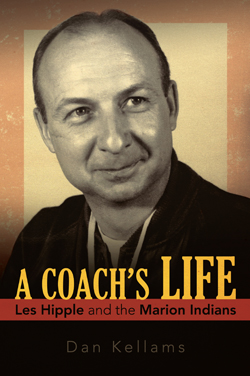A way to clamp down on cursing
 In an early season football scrimmage, a halfback burst through the line, taking the first steps in what he thought would be a long run. But a tackler caught his foot and the runner hit the turf with a meager gain.
In an early season football scrimmage, a halfback burst through the line, taking the first steps in what he thought would be a long run. But a tackler caught his foot and the runner hit the turf with a meager gain.
“Dang!” he yelled.
The coach heard the outburst, took immediate exception and sent the halfback to running laps. Even though the expletive was mild, it was close enough to a swear word to provoke disciplinary measures.That happened many years ago, but it is relevant to concerns shared by many coaches and athletic directors today.
Cursing, it appears, is becoming widespread in high school sports. In a recent online forum conducted by Team Sports Strategies, respondents seemed to confirm that the problem was getting worse, even reaching epidemic proportions in some schools.
Some respondents offered the steps they take to curb swearing by athletes. A coach wrote that anyone who drops an F-bomb has to do push-upsincluding the coach himself. An athletic director said his school did not have a written policy but that use of bad language was unacceptable. Another correspondent wrote of a taught expectation that, when violated, required an immediate apology. He added this approach was’nt working and a study was underway to address the situation.
This exchange brought to mind the techniques used successfully by legendary Iowa high school coach Les Hipple, who clamped down hard on cursing. His no-nonsense approach might help others.
Hipple, born into near poverty, believed wholeheartedly that success in life came from hard work and upright behavior, and he transmitted those values to his players in a set of training rules considered the strictest in the state.
In addition to prohibiting swearing, the rules forbade players from staying up past 10 p.m., allowed no going steady with girls and barred players from driving a car, except on Sunday afternoons. Smoking or drinking resulted in immediate dismissal from the team.
The rules were designed to instill discipline and shape character, and Hipple considered them essential to building winning teams.
To be on a championship team, you must be a champion yourself, the coach wrote.
And turn out championship teams he did: 33 state and conference championships in football, basketball, track and cross-country during 20 years at Marion High School, where he spent most of his career. For most of that timefrom 1945 to 1965he coached all boys sportsand taught physical education, too.
During nine glory years, his basketball teams won 88 percent of their games, his football teams won 84 percent, his track team won five conference championships and his cross-country teams won six state championships. Then a new school administration came into power and began to chip away at his rules. His teams fortunes slowly declined.
Here is Les Hipples formula to curb swearing and other forms of misbehavior.
Make it a written rule. We are going to use only the proper language on or off the field, on trips and around the school building at all times, he wrote. It was the sixth of only 10 written training rules (although he had many more unwritten ones).
He distributed these rules every year to parents, asking their help in seeing their boys followed them. In some versions, he added, We will be a gentleman at all times, setting a standard that permitted no backtalk to officials, trash talk to opponents or any form of showboating.
Enforce the rule universally. Running laps may seem to be a mild form of discipline but it carries a stigma. Running meant the player had disappointed the coach and, in a way, betrayed his team. It also removed him from the field of play. Boys running laps were isolated, but highly visible, in their shame.
Importantly, there were no exceptions to this rule. All-stars ran. So did reserves.
Hipple did not say to an offender, That will be two laps, Smith. He just motioned to the boy to start running. Players learned never to ask how many laps they had to do. They just set off, circling the field or court until Hipple signaled them to rejoin their unit.
Hipple never tried to drive the lesson home by saying, Maybe that will teach you a lesson, Smith. In fact, he never said a word about it. He let the boy ponder his own actions and their consequences.
Set an example. Hipple never swore. Not in practice, not in a game, not at home. When his wife, in a momentary lapse, uttered a mild oath, Hipple tried to shush her. Lester, she replied, There are times when golly just doesn’t fit the occasion. A curse word, he felt, never did.
Les Hipple drilled the importance of gentlemanly behavior into his charges for nearly three decades as a high school coach. Most of his former players remember his effort and influence with gratitude. Some think of him whenever they start to utter a curse.
Yes, it was a long time ago. But if it worked then, why wouldn’t it work today?
Dan Kellamss book, A Coachs Life has been called compelling and poignant by reviewers. It’s the biography of a tough coach in a small town. To learn more, go to www.acoachslife.com





